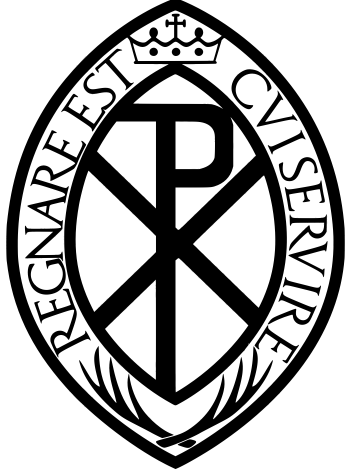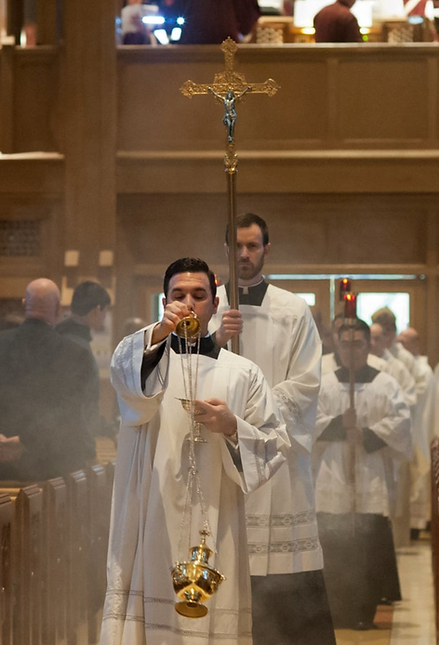
Altar servers, by their skills, knowledge and growing experience, serve the smooth-running of the liturgy: they carry, bring and fetch the things needed by the priest or bishop who is presiding; they ring the bells, as appropriate, and they carry the candles in procession. They can also help to prepare the altar, as well as the credence and offertory tables, before Mass begins, as well as helping clear things away afterwards.
For many young people, both girls and boys, this important ministry represents a memorable and formative stage of their early faith years, and they often begin once they’ve receive their first Holy Communion. Many continue on into their teens performing this service, and share their knowledge and experience with their younger brothers and sisters. There is no upper age limit on serving the altar and we welcome old and young alike, experienced or inexperienced you will be made very welcome.
If you are interested in becoming an altar server please contact Fr. Anders or Andrew our Sacristan/MC.



Roles and Responsibilities
-
Assisting the Clergy: Altar servers assist the priest in various ways, such as holding liturgical books, bringing items to the altar, and carrying the cross and candles in processions.
-
Preparing the Altar: They may also help prepare the altar and the credence and offertory tables before Mass.
-
Liturgical Actions: Altar servers perform specific actions during the liturgy, such as ringing the altar bell at certain points during the Mass, assisting with incense, and helping with the presentation and preparation of the bread and wine for the Eucharist.
-
Clearing up: After the service, they also assist in clearing away items.
-
Service and Spiritual Growth: Altar serving is seen as a way to serve God and the community, encouraging values of love, humility, and service. It provides a unique perspective of the Mass, fostering a deeper understanding of the liturgy and the Catholic faith, leading to spiritual growth.
-
Leadership and Faith Formation: The role promotes responsibility, punctuality, and precision, developing leadership skills. For many young people, it's a formative stage in their faith journey.
Eligibility and Training
-
Baptism and First Communion: In the Catholic Church, individuals must typically have received their First Holy Communion.
-
Maturity and Willingness: A certain level of maturity and willingness to serve is important.
-
Training and Guidance: Training is usually provided, covering the parts of the Mass, the meaning of the liturgy, the use of liturgical objects, and appropriate conduct and attire.
Vestments:
Altar servers often wear specific vestments. Common options include:
-
Alb: A white garment that covers their clothing.
-
Cassock and Surplice: A cassock is a long tunic, often red or black, and a surplice is a white garment worn over the cassock.
